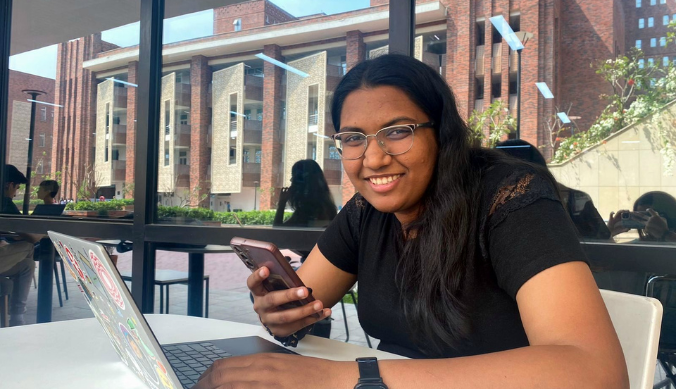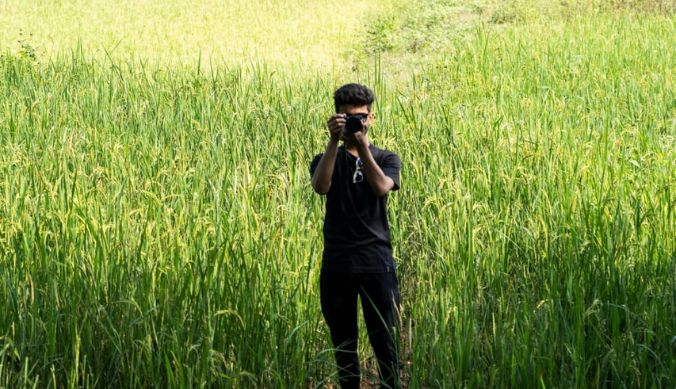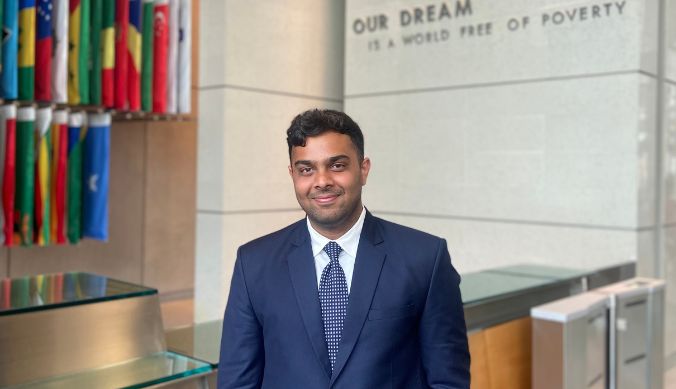Beyond Binaries and Identities: Rethinking Gender and Sexuality via the CSGS Workshops
"Our workshops at CSGS aim to explore the fluidity and chaos in gender and sexuality to think beyond these fixed prescribed boxes," writes Charul Mehndiratta
Can a conversation, a discourse, a stream of consciousness on gender and sexuality be simple? I have taken on the task of simplifying gender and sexuality for the readers – something I also do for the workshops that we conduct at CSGS. However, even at workshops, we are never focused on a simple narrative, a simple discourse, it is not a space for easy answers. Maybe it is a difficult task because the realm of both gender and sexuality is filled with many junctures, and many debates and is a very active part of our everyday reality. For these reasons, I cannot promise a simple narrative, but, what I can do, is promise a simple complexity.
I am interested in the knowing and unknowing of gender – it surely is not something we do not know. We live with it, more often than not, are sure about it, and, in fact, many times assert and affirm it. For example, we affirm our gender on a day-to-day basis by the clothes we choose to wear, choosing which cabin to sit in in the metro, by discerning the washroom we need to use at our workplaces. All these different spaces – the self in relation to clothes, the public in relation to the metro, and the intersection of the public and private with respect to the washrooms – are entrenched in the binary of male and female. And one can start understanding gender by seeing that this familiarity with the binary is not so simple. Our understanding of our mundane forms of expression is rooted in a world that upholds gender very close to its heart.
As soon as one is born, the doctor ticks a check box on the birth certificate. The box is succeeded by the two letters M or F, male or female, which determines the sex of the body through the genitalia of the newborn. The genitalia which one is born with is called sex – sex can be referred to as the physical body, which can be male, female, or intersex according to one’s genitals, sexual organs, hormones, etc. Gender on the other end is not the same as sex, it is the social imposition. The binary of men and women is created around gender. This is to say that gender is a cultural product and one is nurtured into gender; someone born with a vulva is expected to like pink colour, be emotional and take on the role of caregiving; someone born with a penis is given cars to play with, be logical and take on the role of a breadwinner. This distinction between sex and gender helps us understand that gender is not something we are naturally born into but in fact, it is a project of typecasting everyone into the binaries.
This stark distinction between sex and gender too is complicated; it is emphasised that there is something natural about sex and we are nurtured into gender. When claims on nature are made we should always question – who gets to speak for nature and why? There is no nature outside of culture; almost everything one wants to say about sex already has a claim about gender. Gender and sex are both intermeshed and socially reproduced by the society. This can also be understood through the example of violent sex change surgeries which are performed on intersex children so that they can be assigned a fixed gender category.
On a similar tangent, the binary comprehension of gender is also a purist brethren of a fixed sexuality. On one’s medical certificate when the doctor checks the box with an M or F, the document is also stating one’s structure of sexuality. If you are an M, then you are supposed to love and marry F; consecutively, if you are an F, then you are supposed to love and marry an M. Sexuality too then is a cultural product, something which one starts questioning as soon as the inquiry on gender knocks their door. Many also think of sexuality as something which is produced out of names – homosexual, heterosexual, bisexual, etc. The names decide what partner you will like, and these are the modern-day demarcations that discourse on identity has built. We have rich histories of desire in our country, most of which are quite visible to us too, for example, the presence of Vatsanya’s Kamasutra with us, the art and architecture of Khajuraho, the stories of crossdressing of the nawabs of Awadh. This elicits that there are many forms of sexual practices which we consider illegal today that in fact coexisted for centuries without names and identity markers.
A very major portion of where we are in our understanding of sexuality can be understood through the British colonization and the many ways through which the colonizers erased a plethora of queer stories, voices, and practices. The more cruel side of the story is also that punitive British morality insisted on segregation between different forms of desire through laws like the Criminal Tribes Act in 1871 which criminalized the Hijra culture in India, and Section 377 of the IPC in 1860 which criminalised homosexuality. To put it another way, the debates we hear of sexuality today are woven into these narratives and cannot be simplified into just labels of homosexuality and heterosexuality.
It is with a view to rethink such simplifications and singularities that CSGS introduced its workshops across schools, colleges, corporates, and other organisations in the country. Our workshops at CSGS aim to explore the fluidity and chaos in gender and sexuality to think beyond these fixed prescribed boxes. We aspire to create multiple spaces where conversations on these themes are dealt with, with both sensitivity and vigour. The workshops at CSGS also aim to bring forth many of these conversations through a lens that is pleasure-affirmative, sex-positive, and construed in multiplicities. We make sure that we give sex a good name by talking about sexuality in all its forms. We are at that point in our society where we talk about sexuality but only from the lens of the phobic, we are scared of sex, and we are taught in schools, and in colleges that sex can only lead to violence. At CSGS we push for a narrative of sex that is beyond that of violence, we also talk of the pleasures of sex, the significance of desire, and the many ways through which pleasure and desire manifest. We also welcome discomfort, and unease, and are curious about these feelings. This only suggests that workshops are the most enthralling space to be, to learn about the many facets of the self; the self which is entrenched in structures and wants to break free of binaries and identities.
(Charul Mehndiratta is the Workshops Manager at the Centre for Studies in Gender and Sexuality. She is also a former Young India Fellow from the batch of 2020.)










